1. Your baby may actually struggle to fall asleep
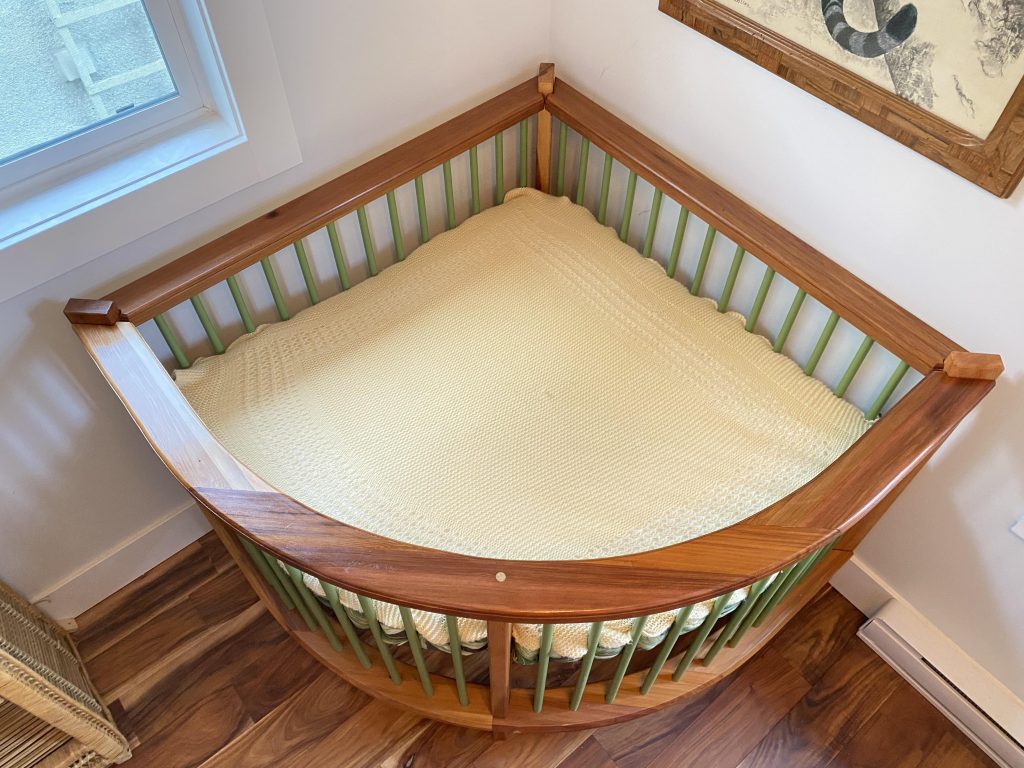 image source: reddit.com
image source: reddit.com
Your baby may struggle to settle down for sleep or experience frequent awakenings throughout the night, indicating an inability to achieve restorative sleep cycles. This could be due to discomfort, hunger, or an irregular sleep schedule disrupting their natural sleep patterns.
2. They always wake up during naps or bedtime
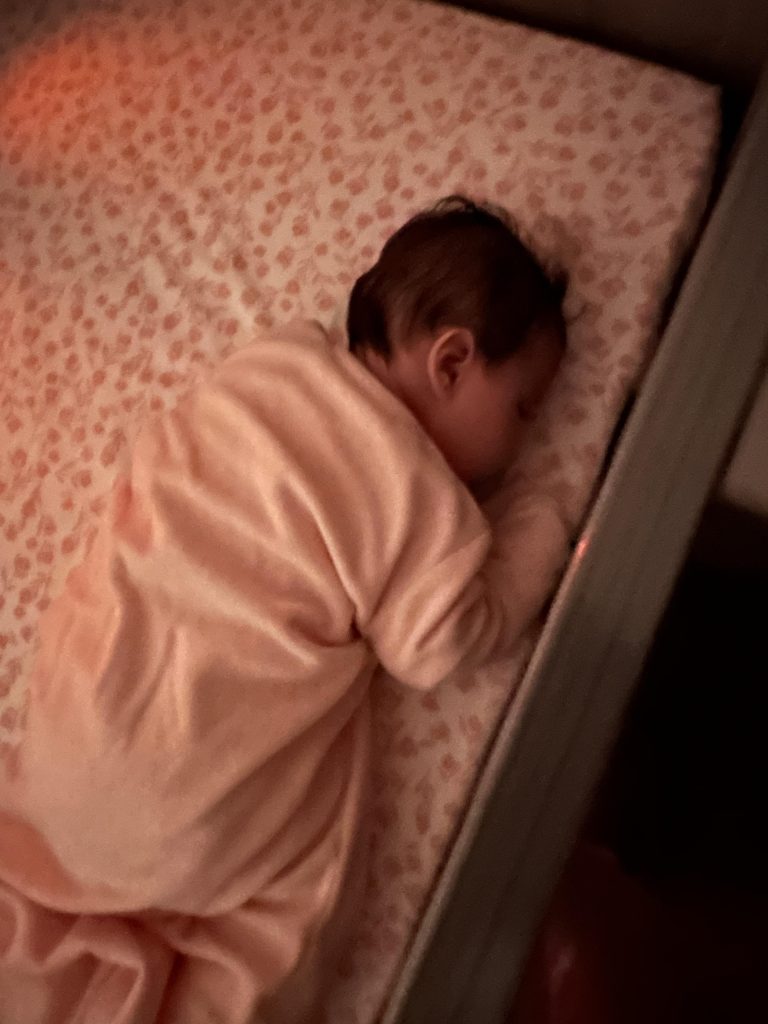 image source: reddit.com
image source: reddit.com
Continuous disruptions in your baby's sleep, whether during daytime naps or nighttime rest, can lead to fragmented sleep cycles, leaving them feeling unrested and irritable. It may also suggest underlying issues such as hunger, discomfort, or an inability to self-soothe.
3. They're very cranky and irritable

image source: reddit.com
Sleep deprivation often manifests as increased fussiness and irritability in babies, as they lack the rest needed to regulate their emotions and behavior effectively. They may become easily agitated or inconsolable, even with attempts to comfort them.
4. They're very fussy, especially later in the day
 image source: reddit.com
image source: reddit.com
Late-day fussiness, commonly referred to as the "witching hour," can be exacerbated by sleep deprivation. As fatigue sets in, babies may become increasingly irritable, making it challenging for them to settle down for bedtime.
5. They're always crying without a clear reason
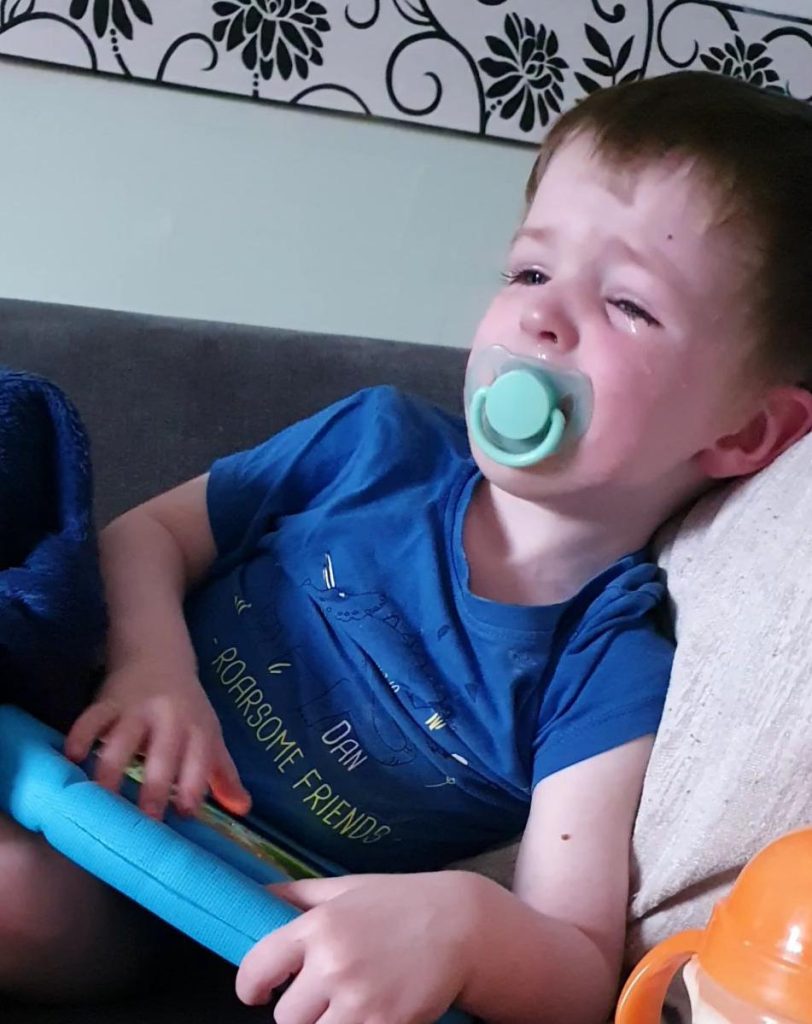 image source: reddit.com
image source: reddit.com
Sleep-deprived babies may cry more frequently and intensely, as their tiredness heightens emotional sensitivity. Despite caregivers' efforts to soothe them, they may continue to cry inconsolably, as their underlying need for rest remains unmet.
6. Usual comforting techniques don't seem to work anymore
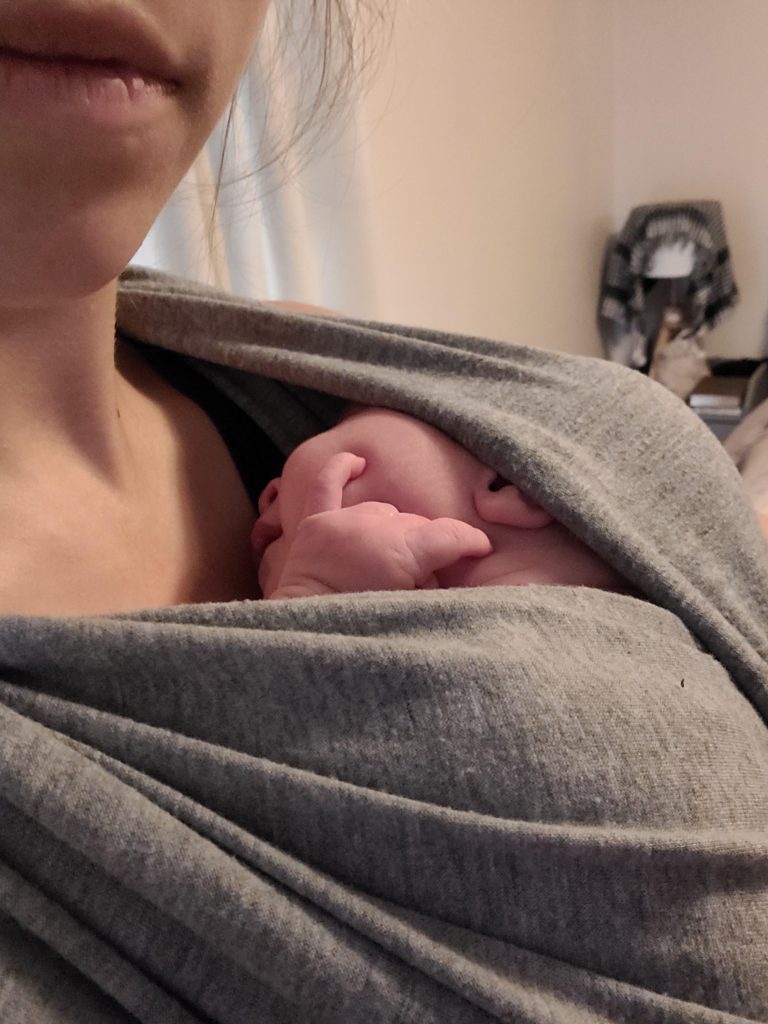 image source: reddit.com
image source: reddit.com
Babies deprived of adequate sleep may struggle to self-soothe or find comfort in usual calming methods, such as rocking, swaddling, or gentle patting. Their exhaustion can override these techniques, prolonging the time it takes for them to fall asleep.
7. They have increasing clinginess or they're very needy
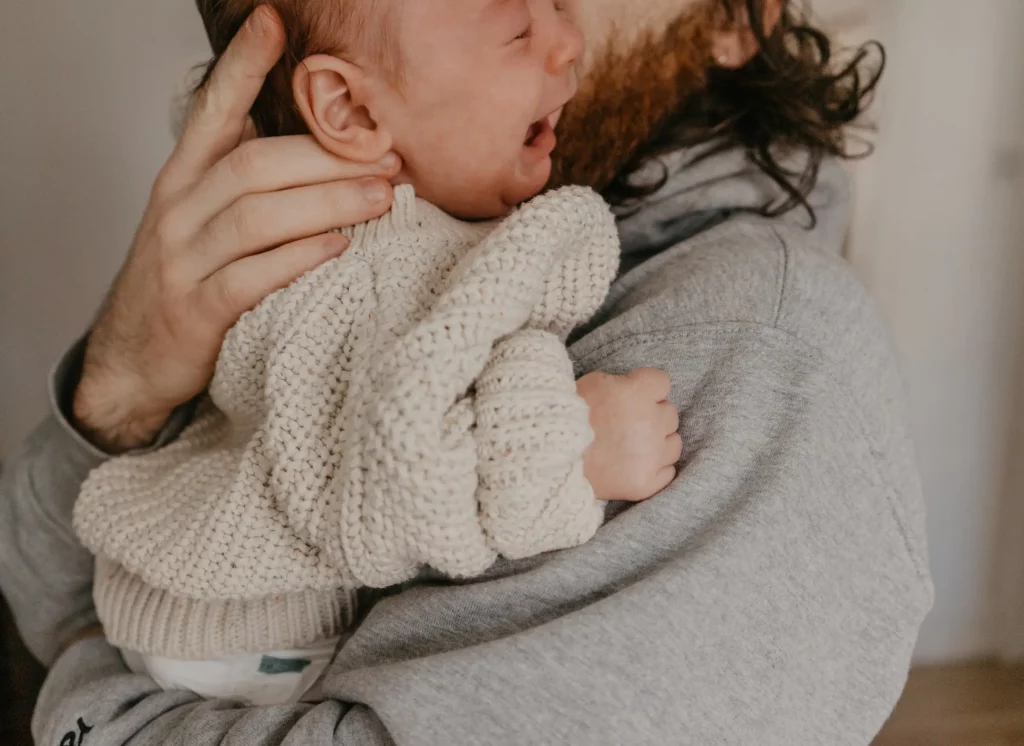 image source: sheknows.com
image source: sheknows.com
Sleep-deprived babies may seek more physical closeness and reassurance from caregivers, clinging to them for comfort and security. This heightened neediness can be a coping mechanism for their fatigue, as they seek external sources of comfort to compensate for their lack of restorative sleep.
8. They're overly sensitive to light, noise or touch
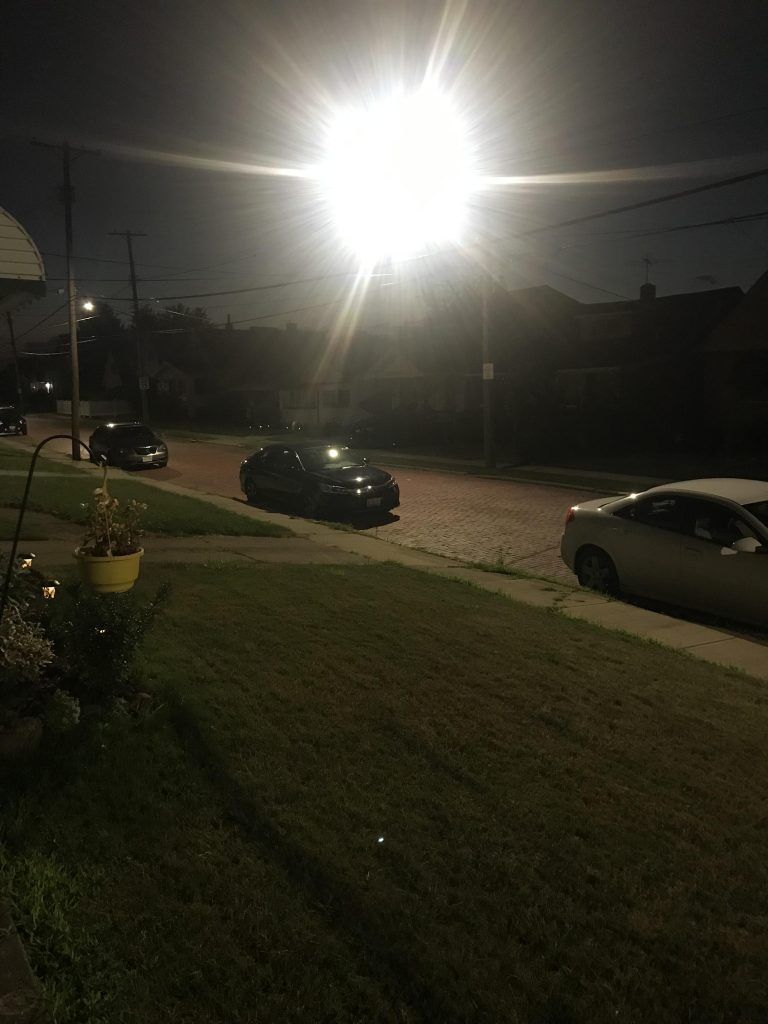 image source: reddit.com
image source: reddit.com
Sleep deprivation can amplify a baby's sensitivity to their environment, causing them to react more strongly to sensory stimuli that might otherwise be tolerable. Bright lights, loud noises, or gentle touches may become overwhelming triggers for distress.
9. Their eating habits have changed
 image source: reddit.com
image source: reddit.com
Disrupted sleep patterns can disrupt a baby's hunger cues and feeding routine, leading to fluctuations in appetite. Some babies may seek comfort in feeding more frequently, while others may have a reduced appetite due to tiredness affecting their metabolism and energy levels.
10. They're rubbing their eyes or rubbing at their ears a lot
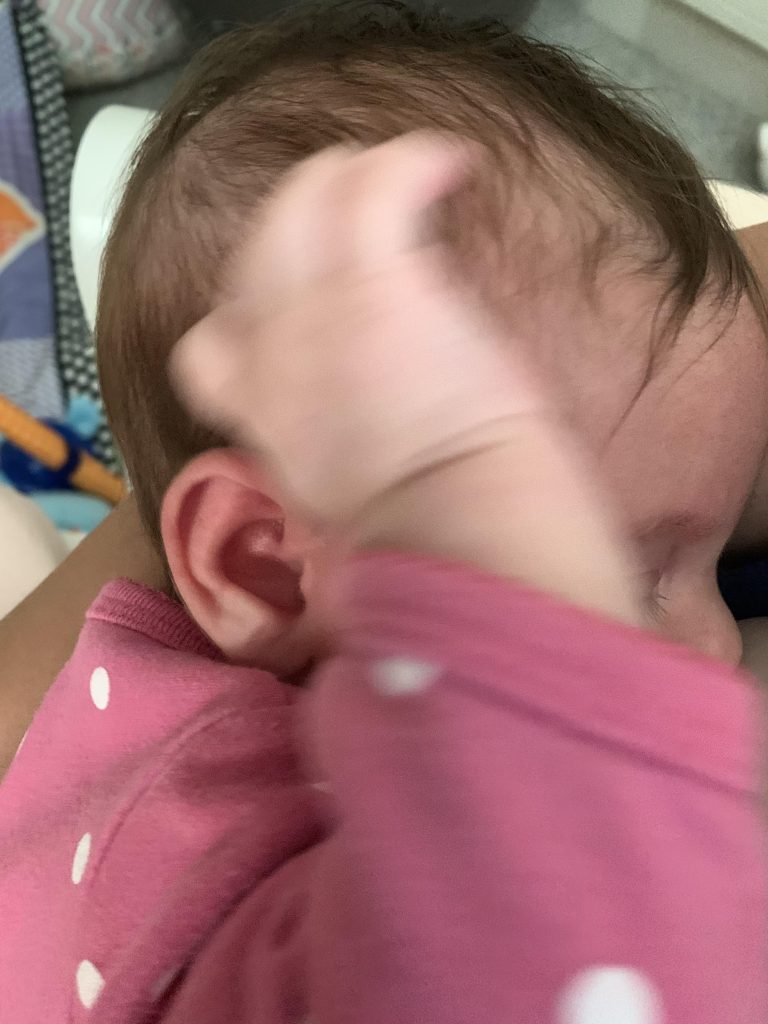 image source: reddit.com
image source: reddit.com
Tiredness often manifests physically, with babies rubbing their eyes or pulling at their ears as a sign of fatigue. These self-soothing gestures may indicate their need for sleep, as they attempt to alleviate discomfort and exhaustion.
11. Excessive yawning or facial rubbing
 image source: reddit.com
image source: reddit.com
Excessive yawning and facial rubbing are common indicators of fatigue in babies, signaling their body's natural response to tiredness. These behaviors may occur throughout the day, especially when they are overdue for a nap or experiencing interrupted sleep.
12. They have less and less interest in what's going on around them
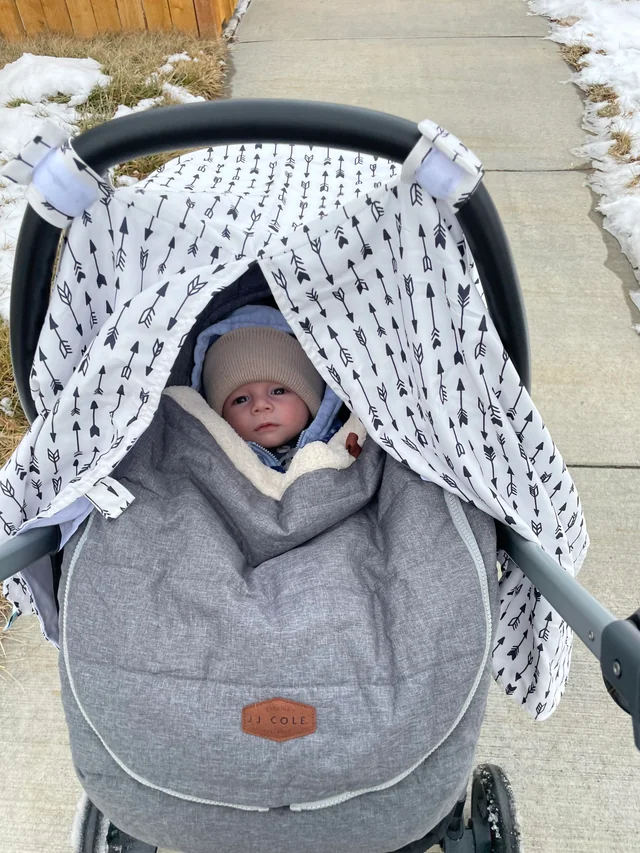 image source: reddit.com
image source: reddit.com
Sleep-deprived babies may exhibit reduced engagement with their environment, showing less interest in toys, interactions, or playtime. Their fatigue can limit their ability to focus and participate actively in stimulating activities, leading to a disengaged demeanor.
13. They get very easily upset or frustrated
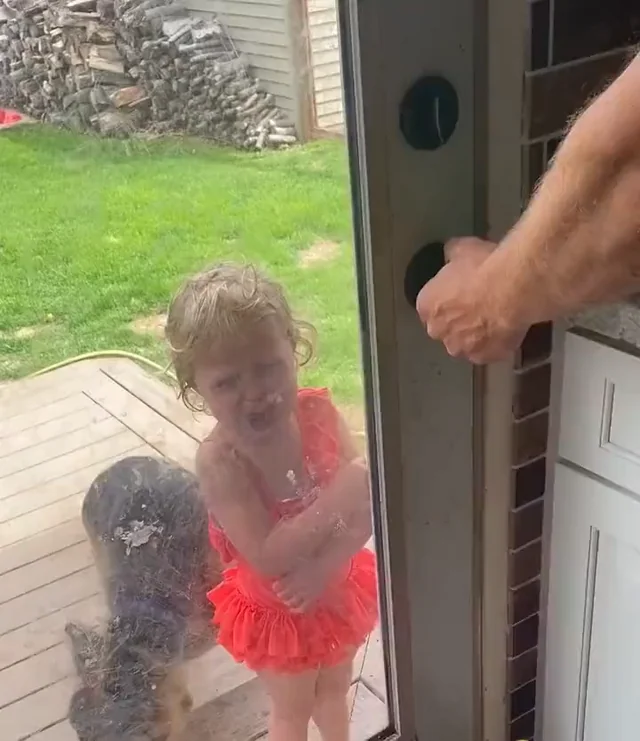 image source: reddit.com
image source: reddit.com
Sleep deprivation can disrupt a baby's emotional regulation, causing mood swings and heightened reactivity to minor stressors. They may become easily frustrated, irritable, or inconsolable, as their tiredness exacerbates emotional instability.
14. They're acting constantly restless and always on the move
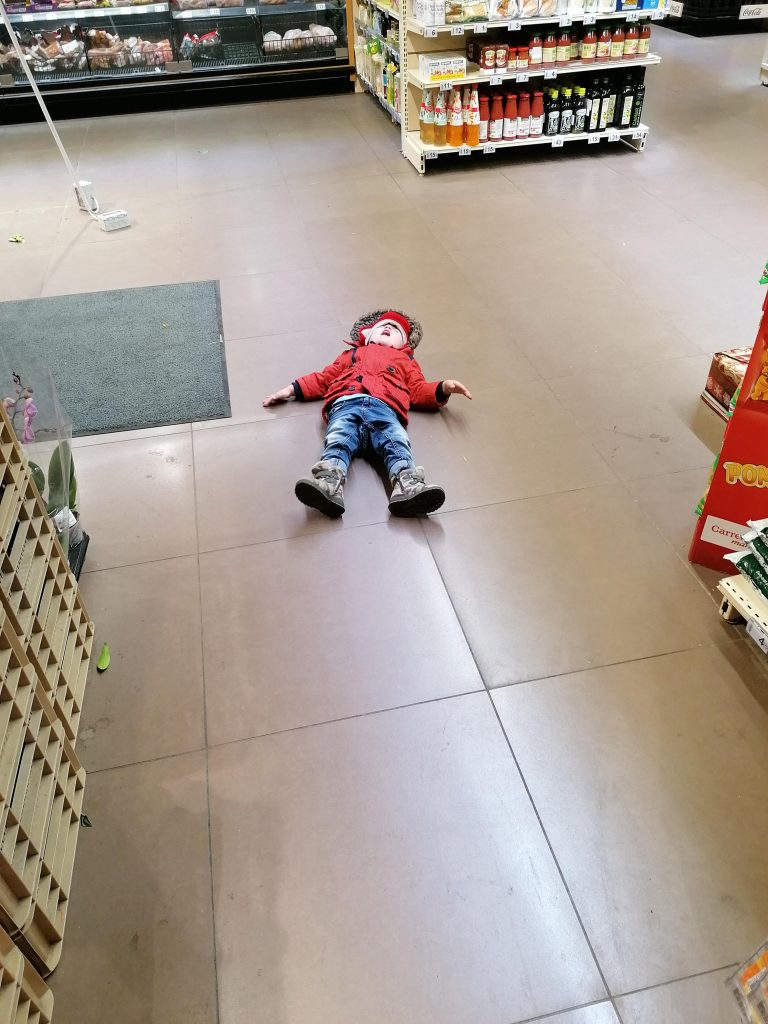 image source: reddit.com
image source: reddit.com
Paradoxically, some sleep-deprived babies may display hyperactive behavior as a response to fatigue, appearing restless and constantly on the move. Their bodies may compensate for exhaustion by seeking stimulation through increased physical activity, making it challenging for them to settle down for sleep.
15. They've become extremely clumsy

image source: reddit.com
Fatigue can impair a baby's motor skills and coordination, leading to clumsiness and an increased risk of accidents. They may stumble more frequently, have difficulty maintaining balance, or exhibit uncharacteristic clumsiness in their movements.
16. They have poor coordination and have no balance
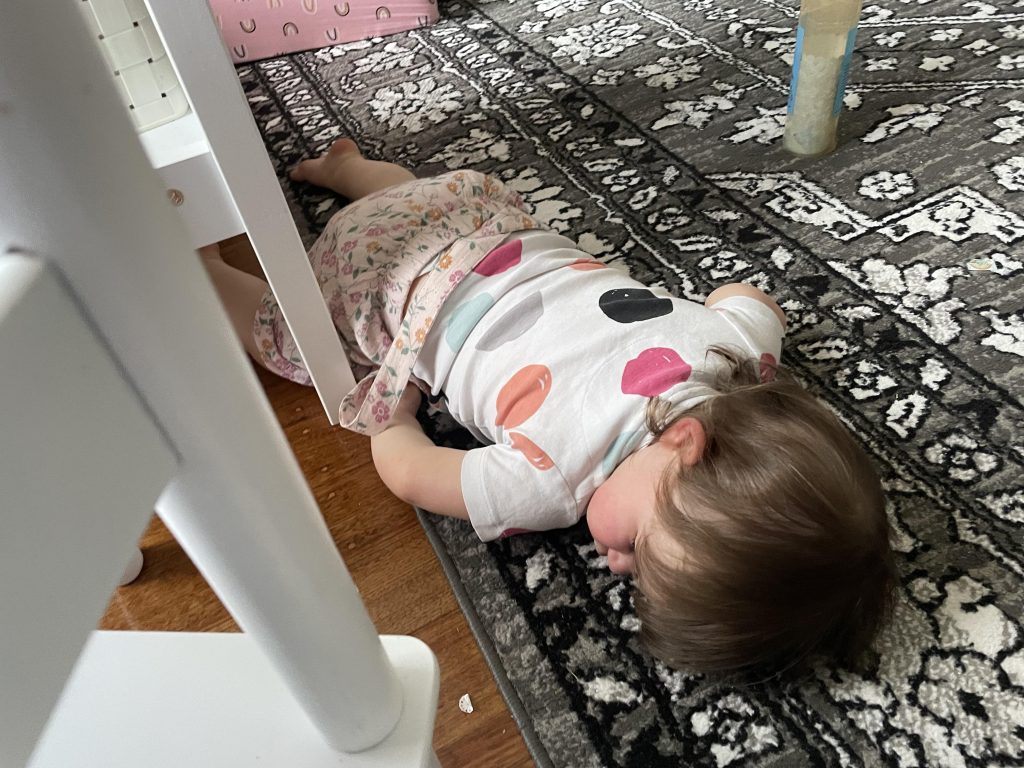 image source: reddit.com
image source: reddit.com
Sleep deprivation can impact a baby's development of gross motor skills and coordination, resulting in decreased balance and control over their movements. They may struggle with tasks that require coordination, such as crawling, standing, or walking, as their tiredness impairs their physical abilities.
17. Development milestones are delayed, like walking or talking
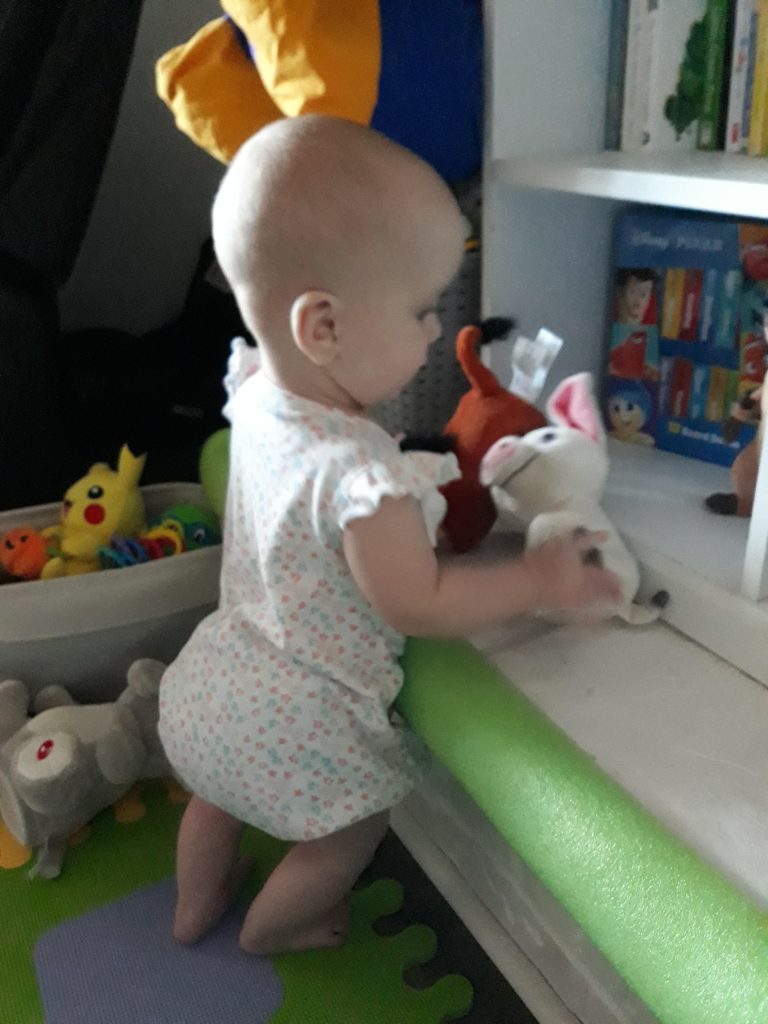 image source: reddit.com
image source: reddit.com
Chronic sleep deprivation can interfere with a baby's developmental progress, delaying milestones such as crawling, walking, or speech acquisition. Sleep is essential for brain development and learning, and inadequate rest can hinder the consolidation of new skills and abilities.
18. They're not very responsive when you attempt to engage them
 image source: snappycasualblog.com
image source: snappycasualblog.com
Sleep-deprived babies may appear less responsive to social cues, interactions, or attempts at engagement from caregivers. Their fatigue can diminish their interest in socializing and limit their capacity to engage with others, resulting in decreased responsiveness and interaction.
19. They're drooling or chewing far too much
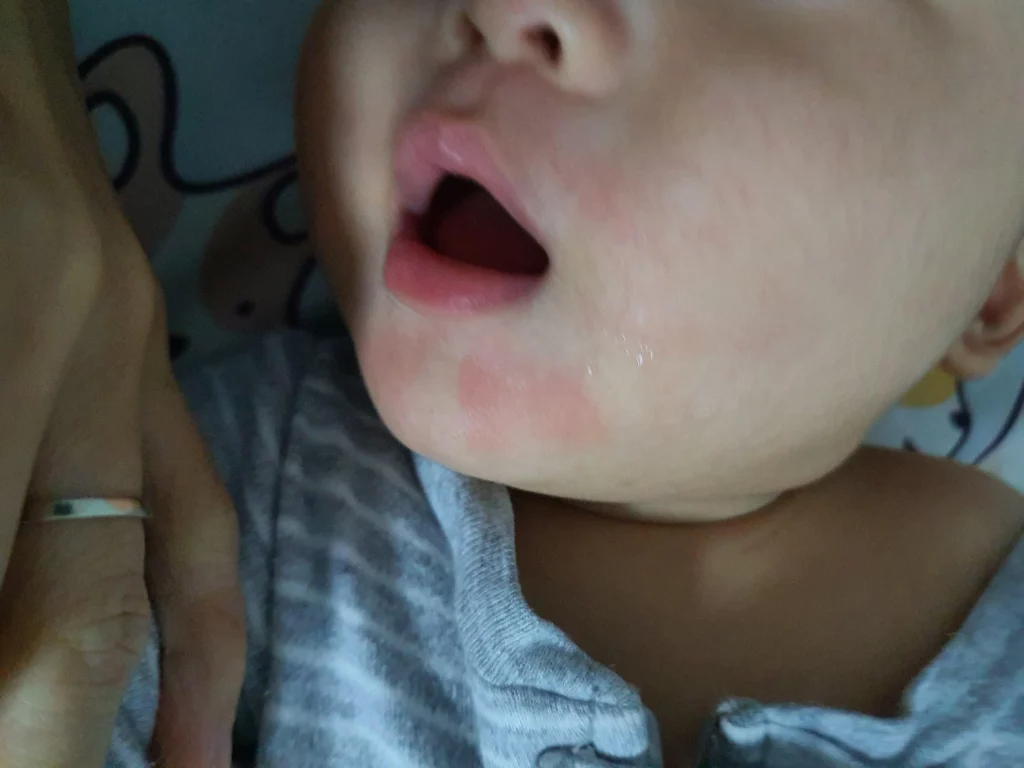 image source: reddit.com
image source: reddit.com
Fatigue can affect a baby's oral motor skills and sensory processing, leading to increased drooling or a tendency to chew on their fingers or hands as a self-soothing mechanism. These behaviors may intensify when they are tired and seeking comfort.
20. You've noticed increased thumb sucking/pacifier use
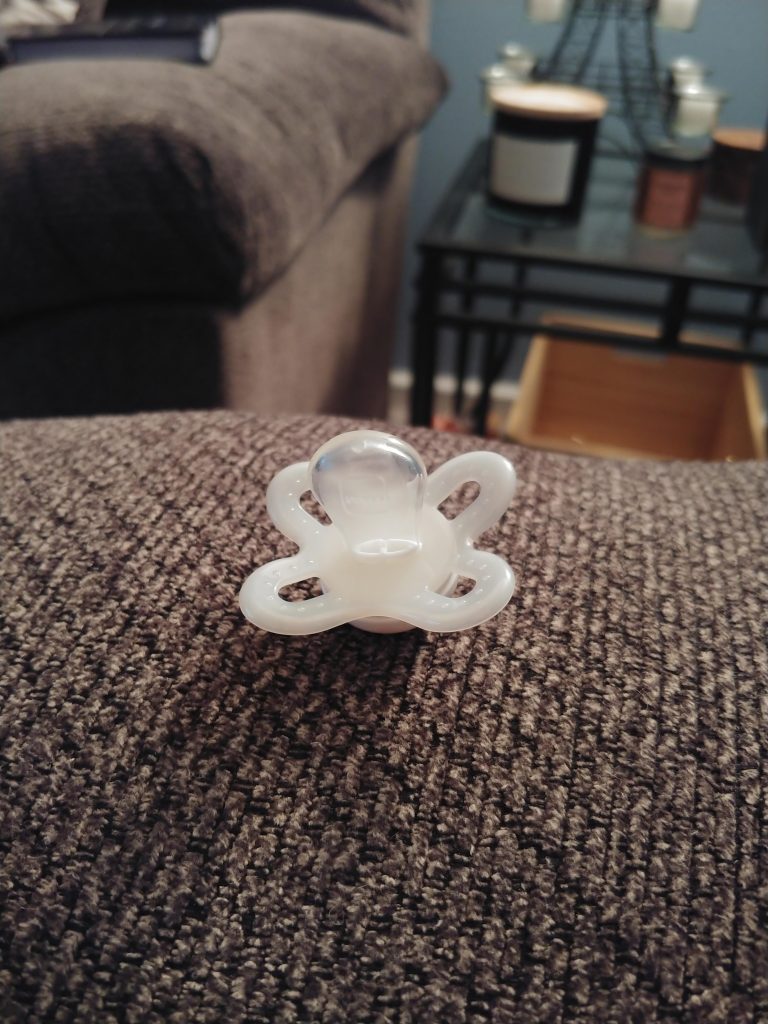 image source: reddit.com
image source: reddit.com
Sleep-deprived babies may rely more heavily on thumb sucking or pacifier use as a means of self-soothing and seeking comfort. These comforting habits may become more pronounced when they are tired and in need of additional soothing to help them fall asleep.
21. Their bowel movements aren't as they should be
 image source: reddit.com
image source: reddit.com
Disrupted sleep patterns can disrupt a baby's digestive system, leading to changes in bowel movements such as constipation or diarrhea. Stress and fatigue can affect gut health and motility, potentially causing gastrointestinal discomfort and irregularities.
22. They have dry skin or skin rashes
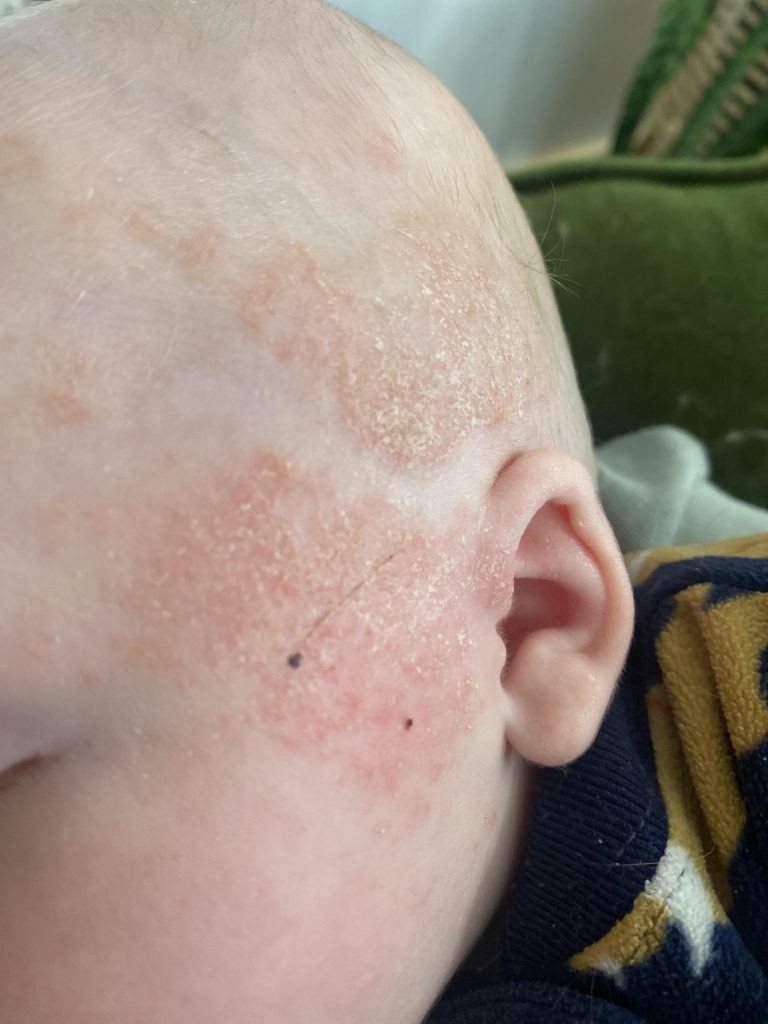 image source: reddit.com
image source: reddit.com
Sleep deprivation can compromise a baby's immune function and skin health, making them more susceptible to skin problems such as dryness, irritation, or rashes. Stress and fatigue can exacerbate existing skin conditions or trigger new flare-ups, requiring attention and care to manage.
23. They get ill very easily
 image source: poison.org
image source: poison.org
Chronic sleep deprivation can weaken a baby's immune system, making them more vulnerable to illnesses and infections. Inadequate rest compromises the body's ability to fight off pathogens and recover from illness, increasing the likelihood of frequent colds, infections, or other health issues.
24. They stare into space a lot
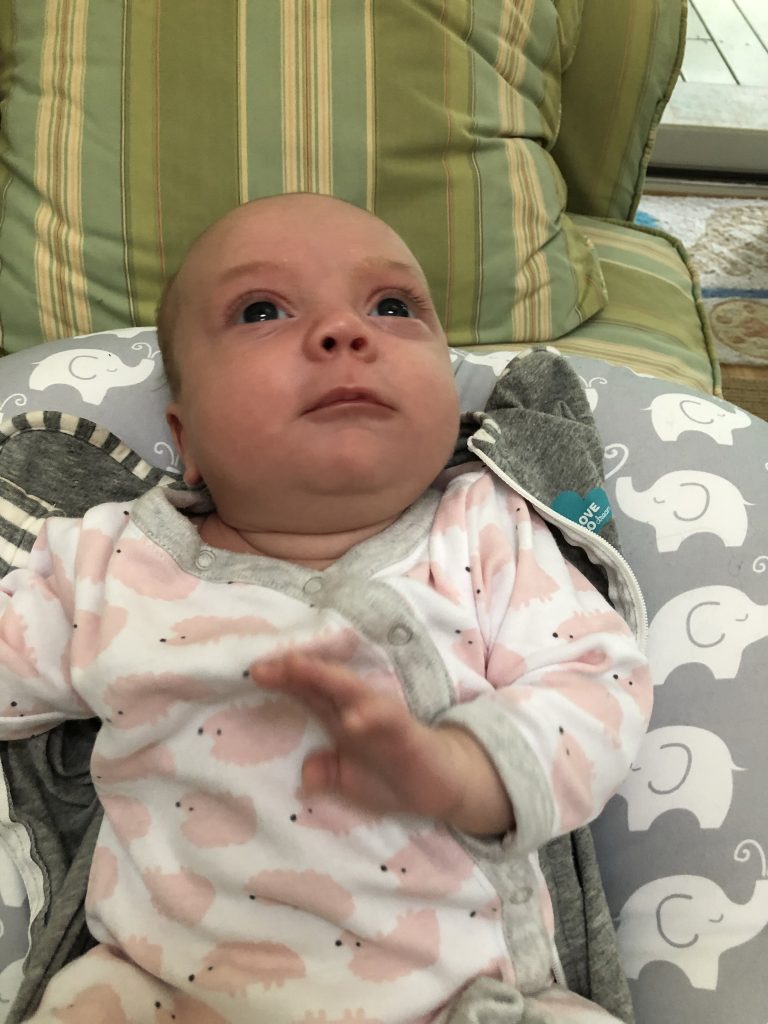 image source: community.whattoexpect.com
image source: community.whattoexpect.com
Yawning and vacant staring are common signs of fatigue in babies, indicating their body's natural response to tiredness. These behaviors may occur frequently, especially when they are overdue for sleep or experiencing prolonged wakefulness.
25. They're always falling asleep outside of regular nap times
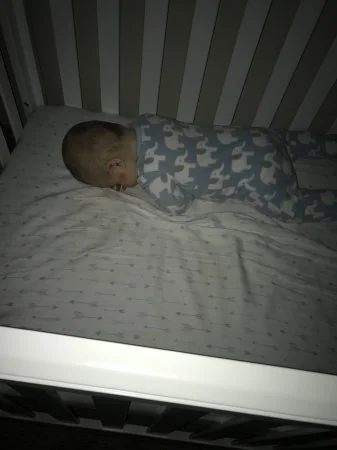
image source: reddit.com
Excessive tiredness can cause babies to fall asleep spontaneously throughout the day, regardless of their usual nap schedule. They may nod off during feeding, playtime, or other activities, unable to stay awake due to overwhelming fatigue.
26. They can't stay focused on anything
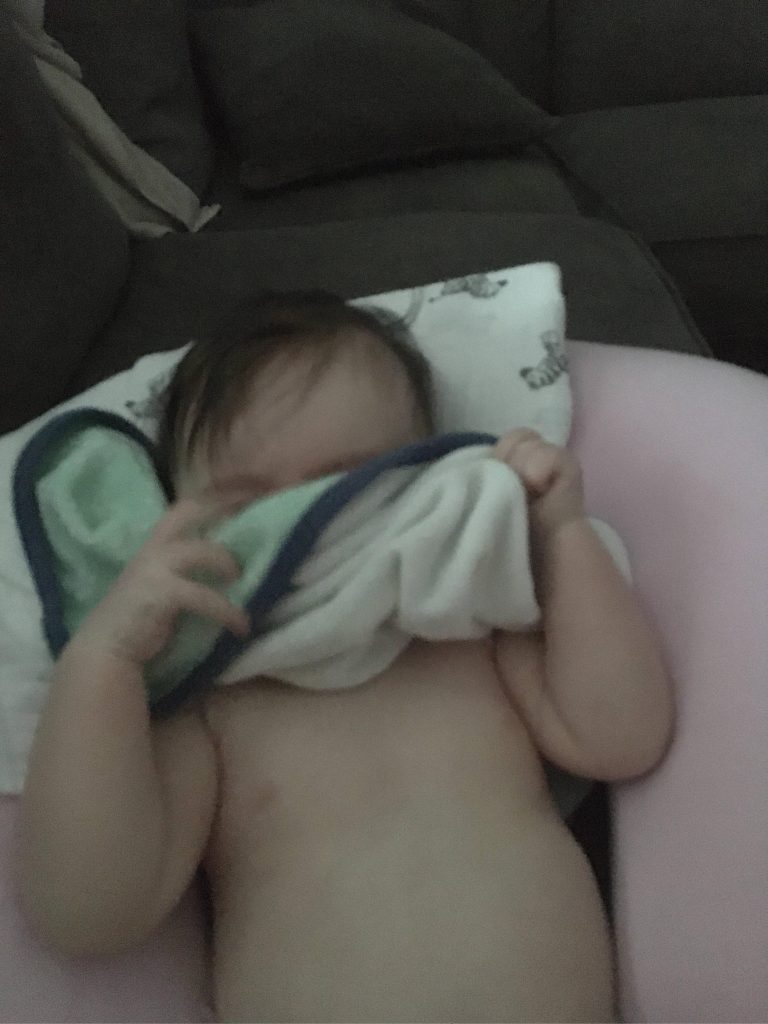 image source: reddit.com
image source: reddit.com
Sleep-deprived babies may struggle to maintain attention or focus on tasks or stimuli, as their tiredness impairs cognitive function and concentration. They may become easily distracted or disengaged, finding it challenging to sustain interest or involvement in activities.
27. They have an increased need to be close to you
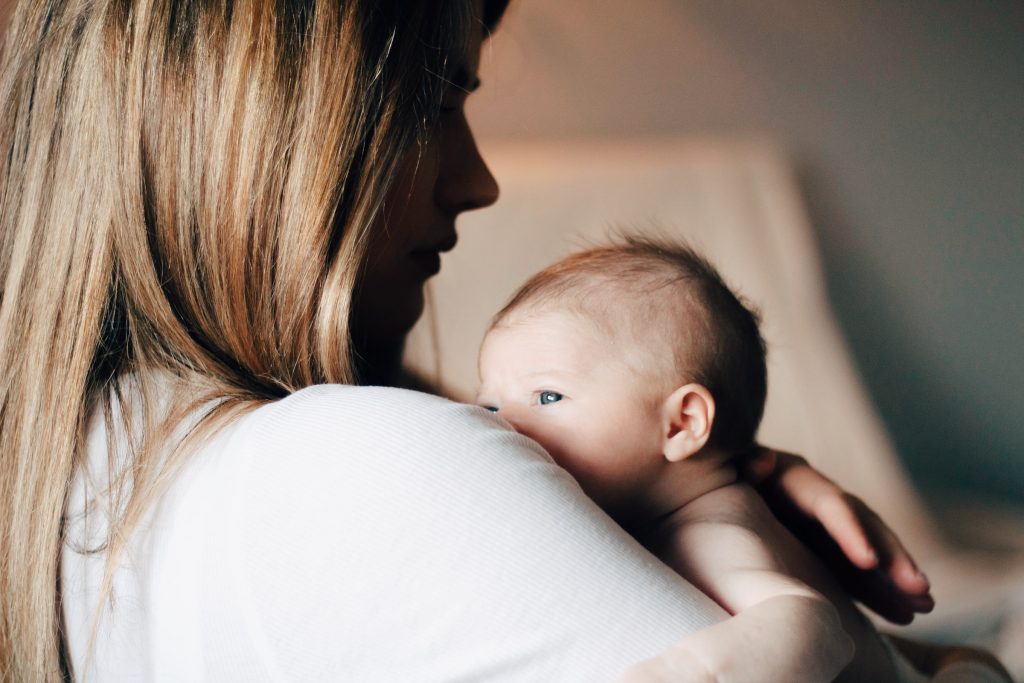 image source: sheknews.com
image source: sheknews.com
Babies deprived of adequate sleep may seek more frequent physical contact and comfort from caregivers, craving the soothing touch and reassurance of close proximity. Skin-to-skin contact, cuddling, and gentle rocking can provide comfort and security, helping them feel more settled and calm.
28. You've noticed an irregular breathing pattern when they're asleep
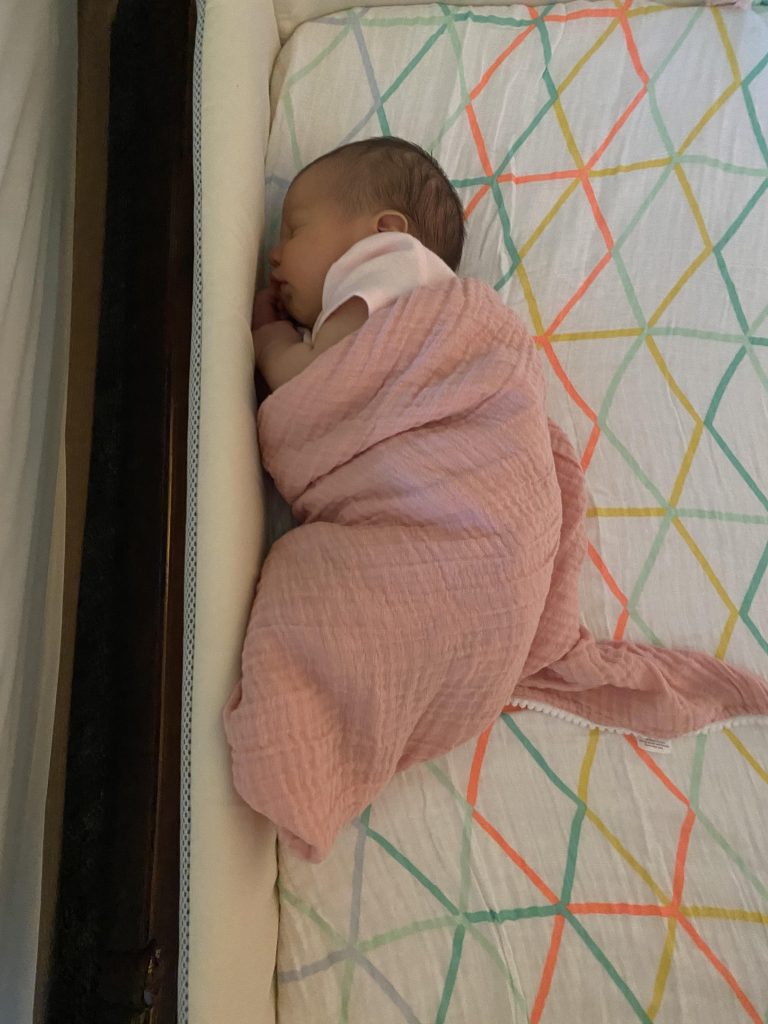 image source: reddit.com
image source: reddit.com
Sleep deprivation can disrupt a baby's respiratory patterns during sleep, leading to irregular breathing or breathing disturbances such as snoring or pauses in breathing (sleep apnea). These breathing abnormalities may indicate underlying sleep issues that require attention and evaluation.
29. They grind their teeth when they're asleep
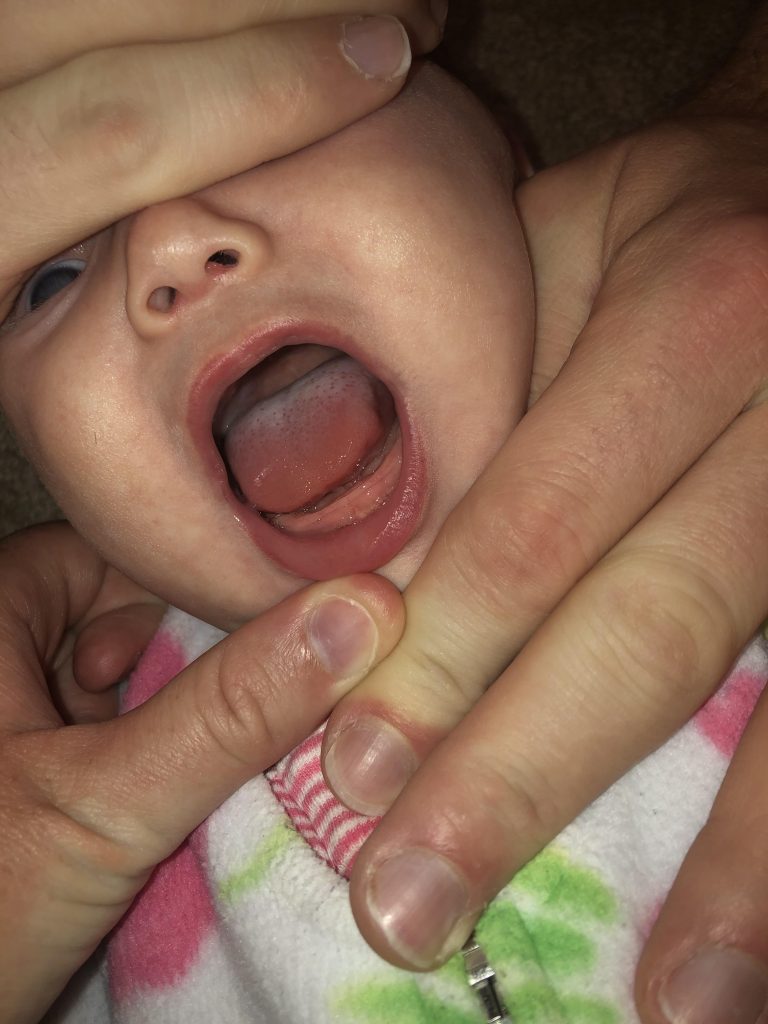 image source: reddit.com
image source: reddit.com
Bruxism, or teeth grinding, can occur during sleep as a response to stress, discomfort, or fatigue in babies. Sleep-deprived infants may grind their teeth as a self-soothing mechanism, exacerbating dental problems and causing discomfort or pain in the jaw and teeth.
30. They have frequent nightmares or even night terrors
 image source: reddit.com
image source: reddit.com
Sleep disturbances such as night terrors or nightmares can occur more frequently in sleep-deprived babies, disrupting their sleep cycles and causing distress during the night. These intense episodes of fear or agitation can be triggered by fatigue and may require gentle reassurance and comforting from caregivers.
31. They're always tossing and turning during sleep
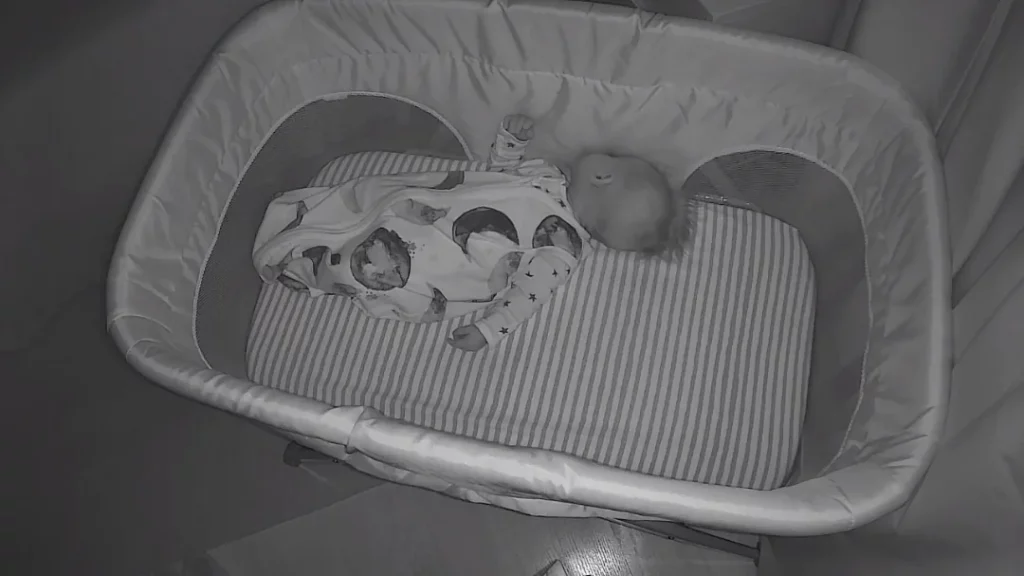 image source: reddit.com
image source: reddit.com
Sleep deprivation can disrupt the quality of a baby's sleep, leading to restless or disturbed sleep patterns characterized by frequent tossing and turning. They may appear unsettled or restless in their sleep, unable to achieve deep, restorative rest.
32. They need to be close to someone, even during sleep
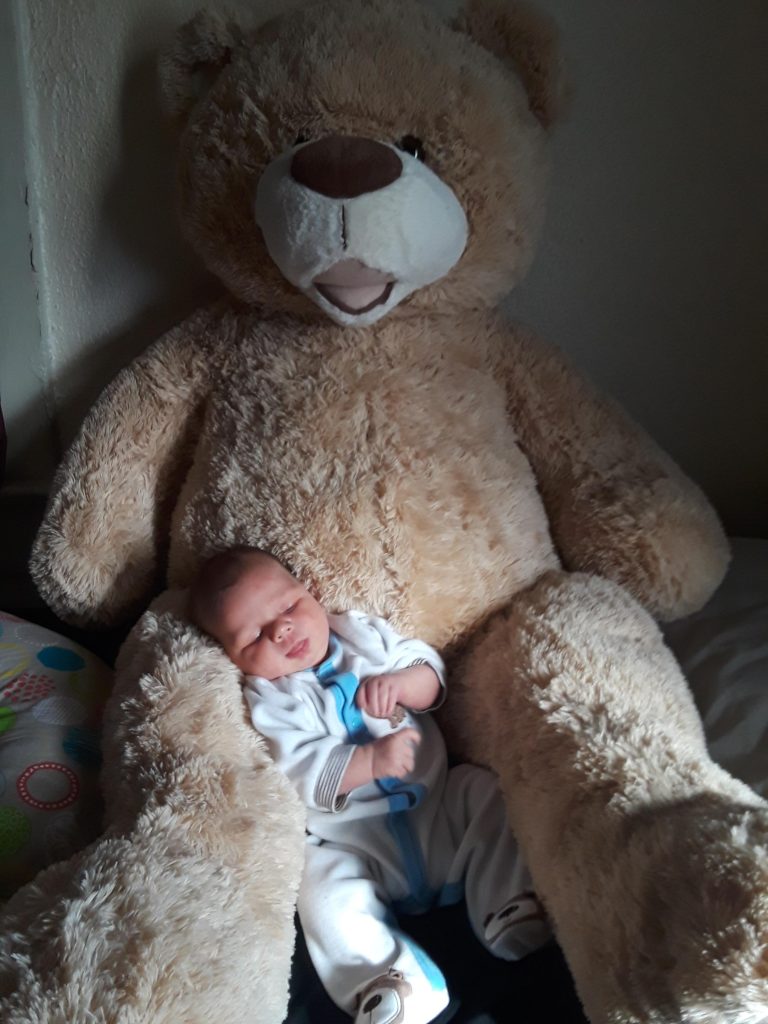 image source: reddit.com
image source: reddit.com
Sleep-deprived babies may exhibit clinginess or separation anxiety during sleep, seeking constant reassurance and proximity to parents or caregivers. They may resist being put down to sleep alone, preferring the comfort and security of being held or close to their caregivers.
33. They're startled very easily
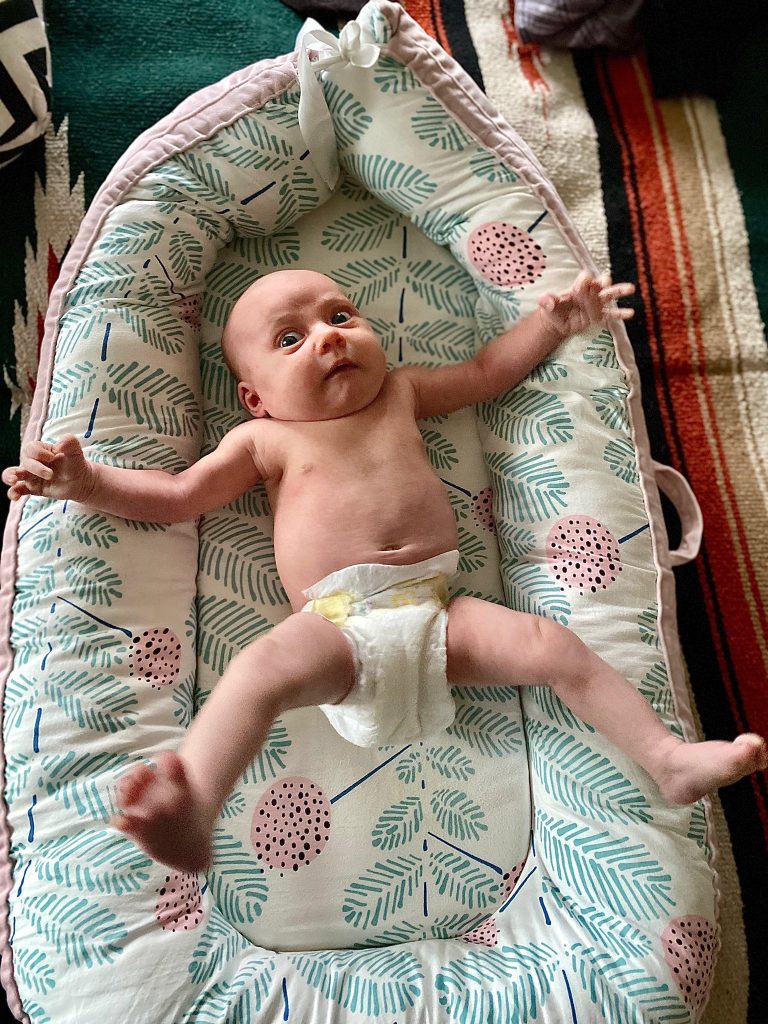 image source: reddit.com
image source: reddit.com
Fatigue can heighten a baby's startle reflex, causing them to react more strongly to sudden noises or movements during sleep. They may startle easily and awaken abruptly, disrupting their sleep cycles and making it challenging for them to stay asleep.
34. They clench their jaw during the day
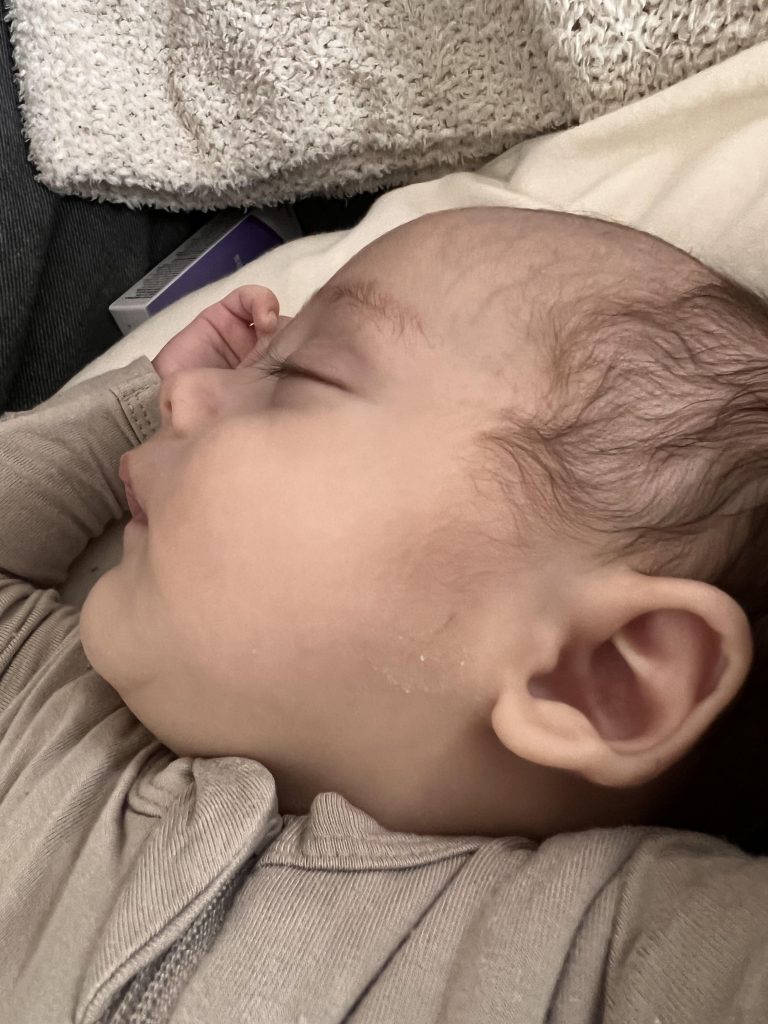 image source: reddit.com
image source: reddit.com
Bruxism, or teeth grinding, can occur during wakefulness as well as sleep in babies experiencing fatigue or stress. They may grind their teeth or clench their jaw as a coping mechanism, signaling their need for comfort and relief from tension.
35. They always want to be rocked to sleep
 image source: reddit.com
image source: reddit.com
Sleep-deprived babies may crave more frequent holding or rocking to help them fall asleep, seeking the soothing motion and closeness of their caregivers. They may resist being put down to sleep independently, preferring the comfort and security of being held until they drift off.
36. They always seem to be sweating or feeling too warm
 image source: reddit.com
image source: reddit.com
Sleep deprivation can affect a baby's ability to regulate their body temperature, leading to fluctuations such as sweating or feeling excessively warm. Their tiredness may disrupt thermoregulation, causing discomfort and disturbances in their sleep.
37. They struggle to move from one activity to another
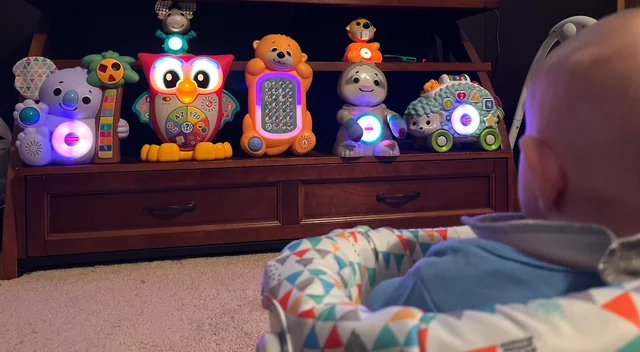 image source: reddit.com
image source: reddit.com
Sleep-deprived babies may struggle with transitions between activities or environments, finding it challenging to adapt to changes in routine or stimuli. They may become easily overwhelmed or resistant to transitions, requiring patience and support from caregivers to navigate changes smoothly.
38. They don't seem to have a lot of interest in play or exploring
 image source: reddit.com
image source: reddit.com
Chronic sleep deprivation can dampen a baby's curiosity and enthusiasm for exploration and play, as fatigue impairs their energy levels and motivation. They may show less interest in toys, activities, or social interactions, preferring quiet and restful moments instead.
39. They depend on comfort objects, like blankets
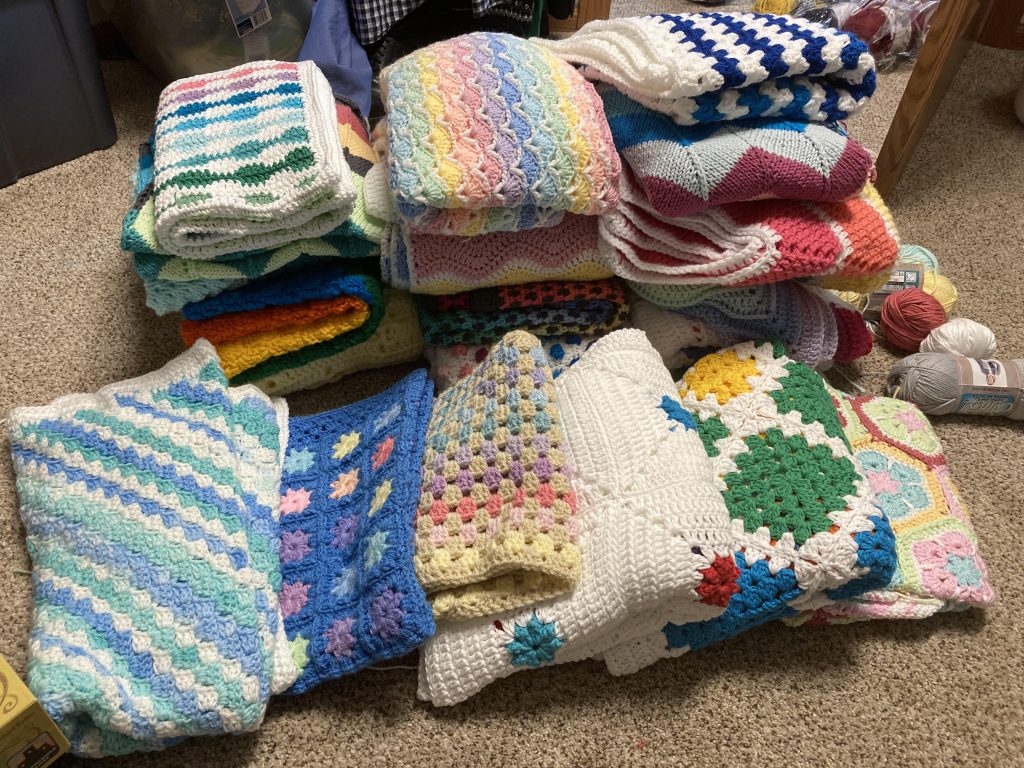 image source: reddit.com
image source: reddit.com
Sleep-deprived babies may develop a stronger attachment to comfort objects such as blankets, stuffed animals, or pacifiers, seeking solace and security in these familiar items. These comforting objects can provide a sense of stability and reassurance, helping them feel more settled and calm during sleep.
40. They're very resistant to any sleep routines
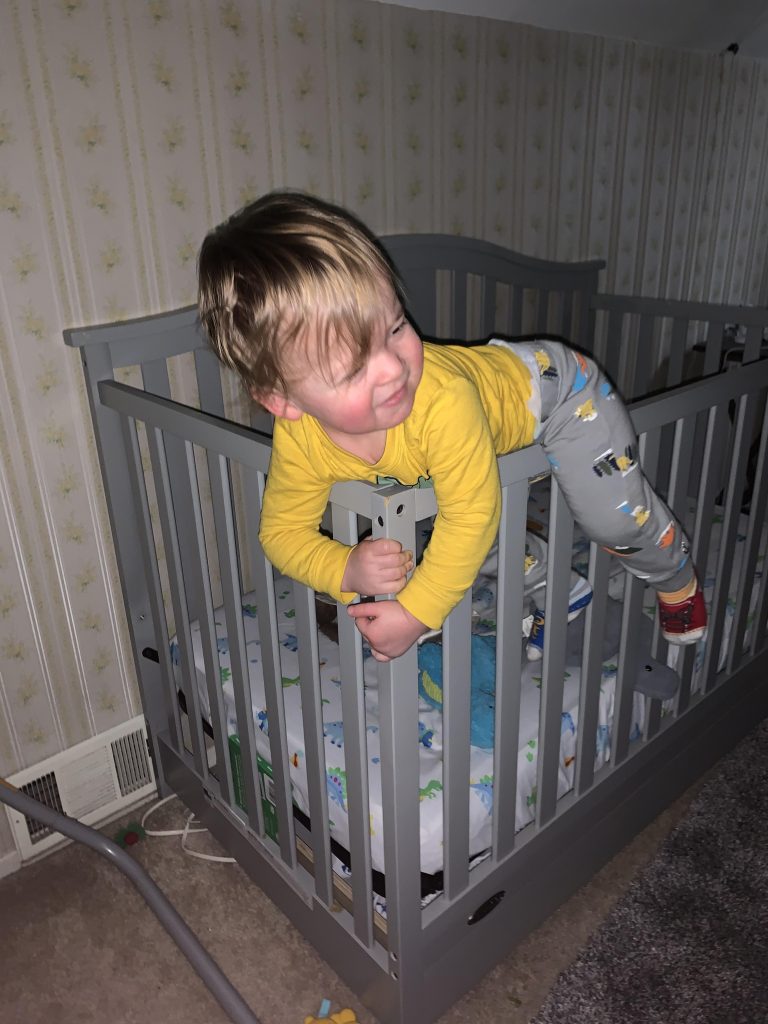 image source: reddit.com
image source: reddit.com
Babies experiencing sleep deprivation may resist or struggle with established sleep routines or rituals, finding it challenging to settle down for sleep at predictable times. They may become more resistant to bedtime routines or display heightened anxiety about the prospect of sleep, making it difficult for them to relax and unwind.
41. They have mood swings during waking hours
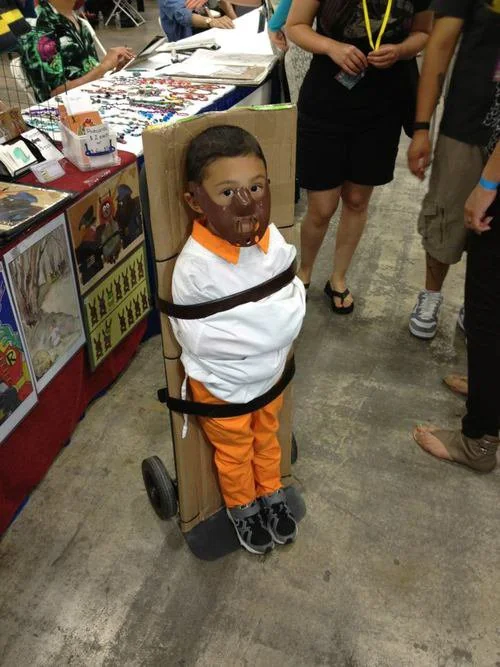
image source: reddit.com
Sleep deprivation can impact a baby's mood and behavior throughout the day, leading to fluctuations in temperament and emotional regulation. They may alternate between periods of irritability, fussiness, and clinginess, as their tiredness affects their ability to cope with everyday stressors and stimuli.
42. They're increasingly agitated right before sleep time

image source: reddit.com
Restlessness and agitation may intensify in sleep-deprived babies, particularly as bedtime approaches and fatigue accumulates. They may become increasingly unsettled or irritable, making it challenging for them to settle down for sleep and transition into a restful state.
43. Their feeding patterns have changed
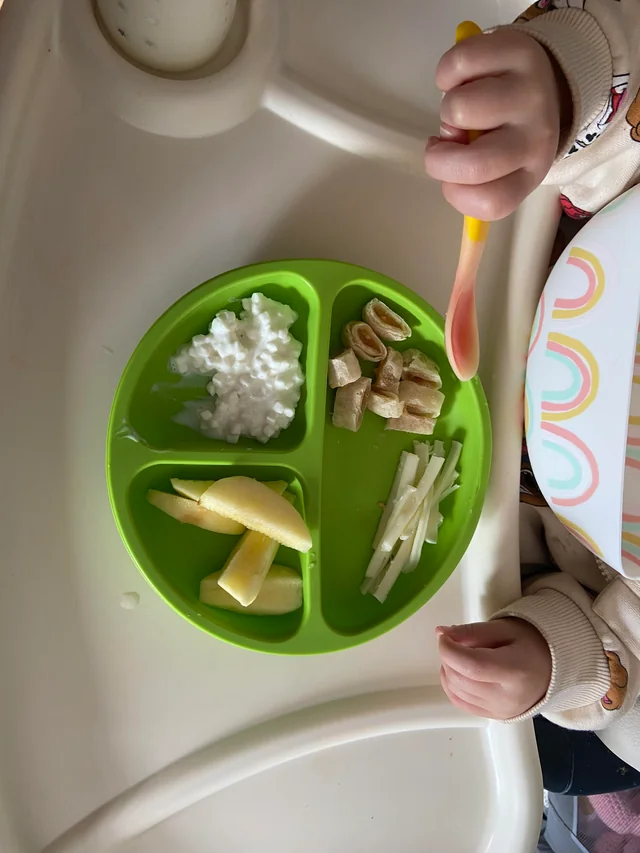 image source: reddit.com
image source: reddit.com
Sleep deprivation can disrupt a baby's appetite and feeding routine, leading to changes such as increased or decreased hunger cues. Some babies may seek comfort in feeding more frequently, while others may have a reduced appetite due to fatigue affecting their metabolism and energy levels.
44. They whine or whimper a lot
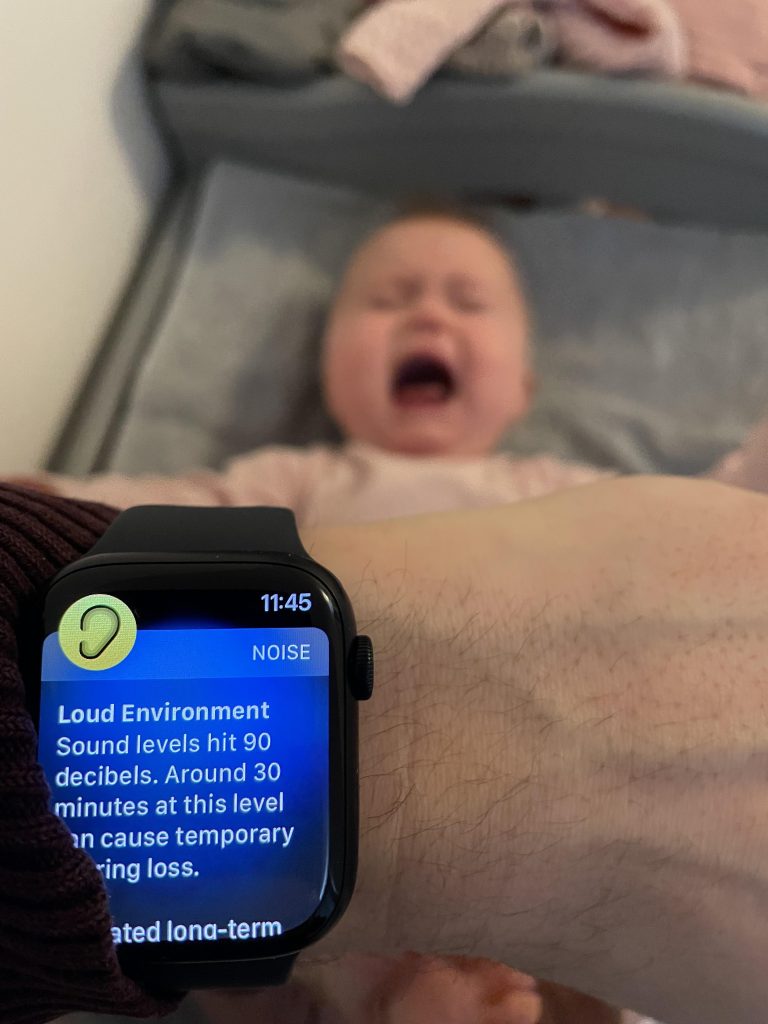 image source: reddit.com
image source: reddit.com
Sleep-deprived babies may express their discomfort and fatigue through increased whining or whimpering, signaling their need for comfort and reassurance from caregivers. These vocalizations may become more pronounced when they are tired and seeking relief from exhaustion.
45. Your baby can't seem to keep eye contact
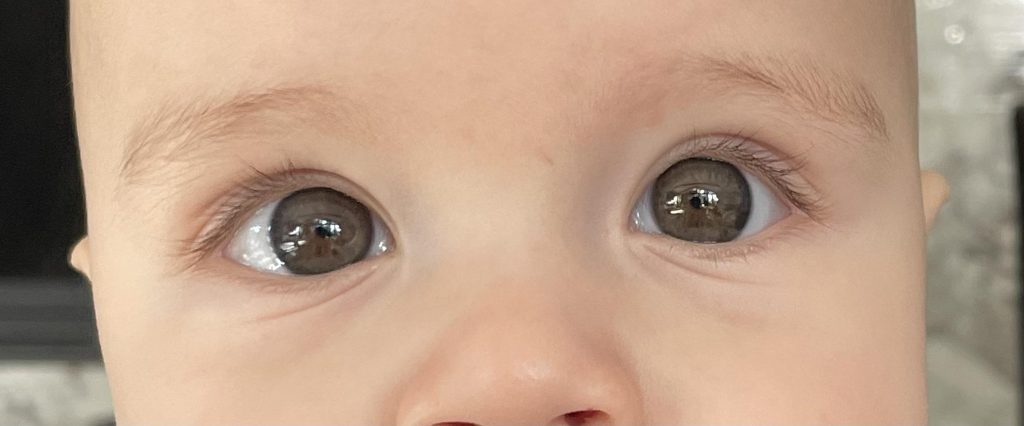 image source: reddit.com
image source: reddit.com
Fatigue can impair a baby's ability to maintain eye contact during interactions with caregivers, as tiredness affects their alertness and engagement. They may appear disinterested or avoidant, finding it challenging to sustain focus and attention during social interactions.
46. They have heightened sensitivity to sound or movement
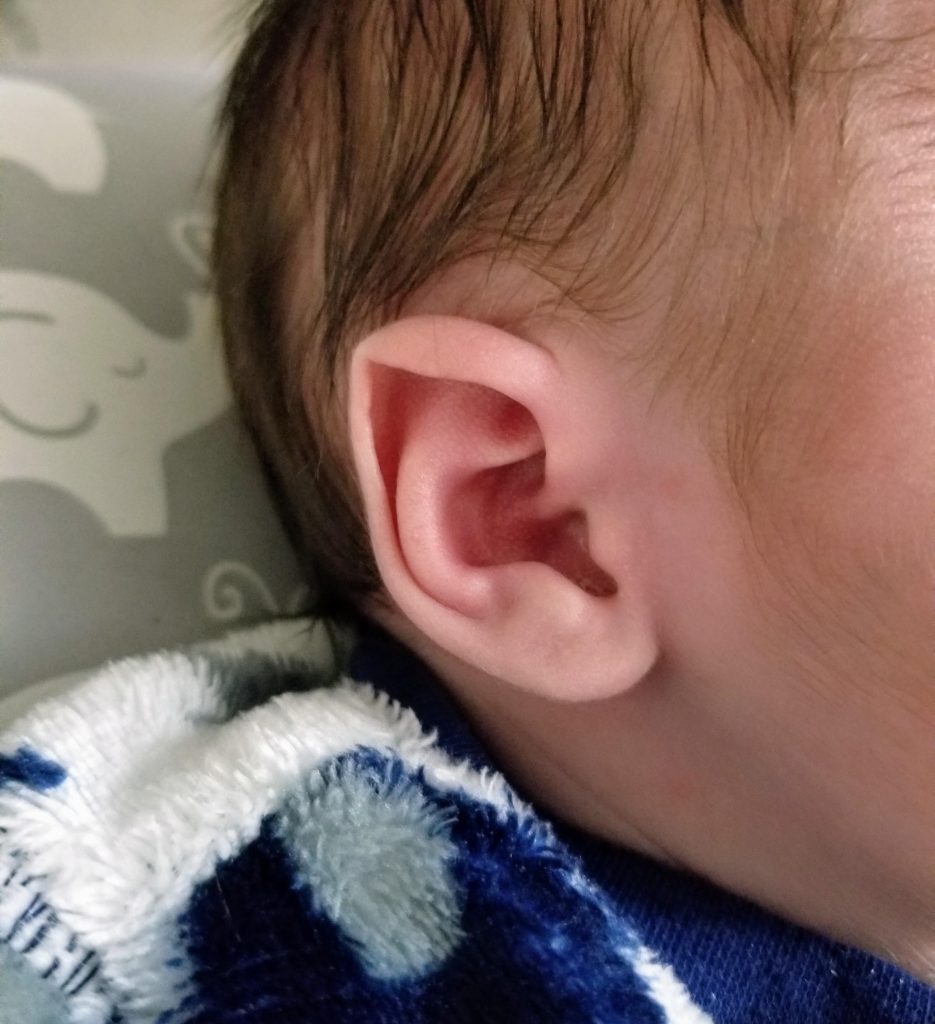 image source: reddit.com
image source: reddit.com
Sleep deprivation can amplify a baby's sensitivity to sensory stimuli such as sound or movement, making them more reactive and easily startled. They may become distressed by loud noises or sudden movements, finding it challenging to relax and unwind in a stimulating environment.
47. They very easily get overstimulated
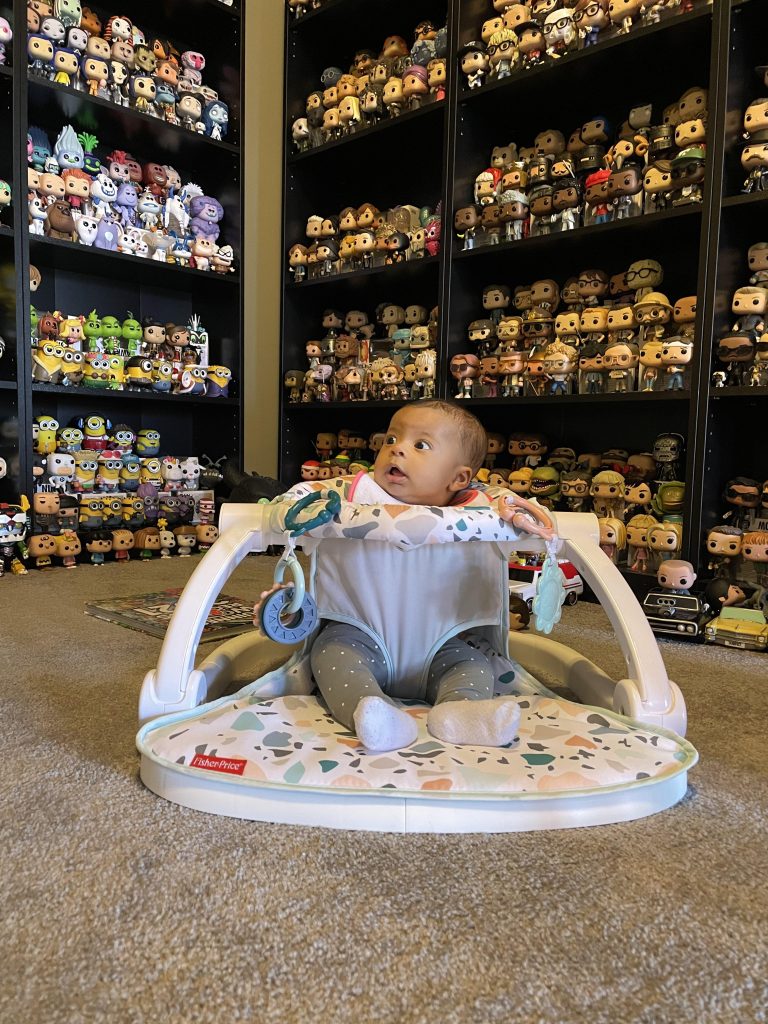 image source: reddit.com
image source: reddit.com
Sleep-deprived babies may become more susceptible to overstimulation, as fatigue lowers their threshold for sensory input and arousal. They may become overwhelmed or agitated in environments with excessive stimuli, struggling to regulate their responses and behavior effectively.
48. Their go-to is solitary activities
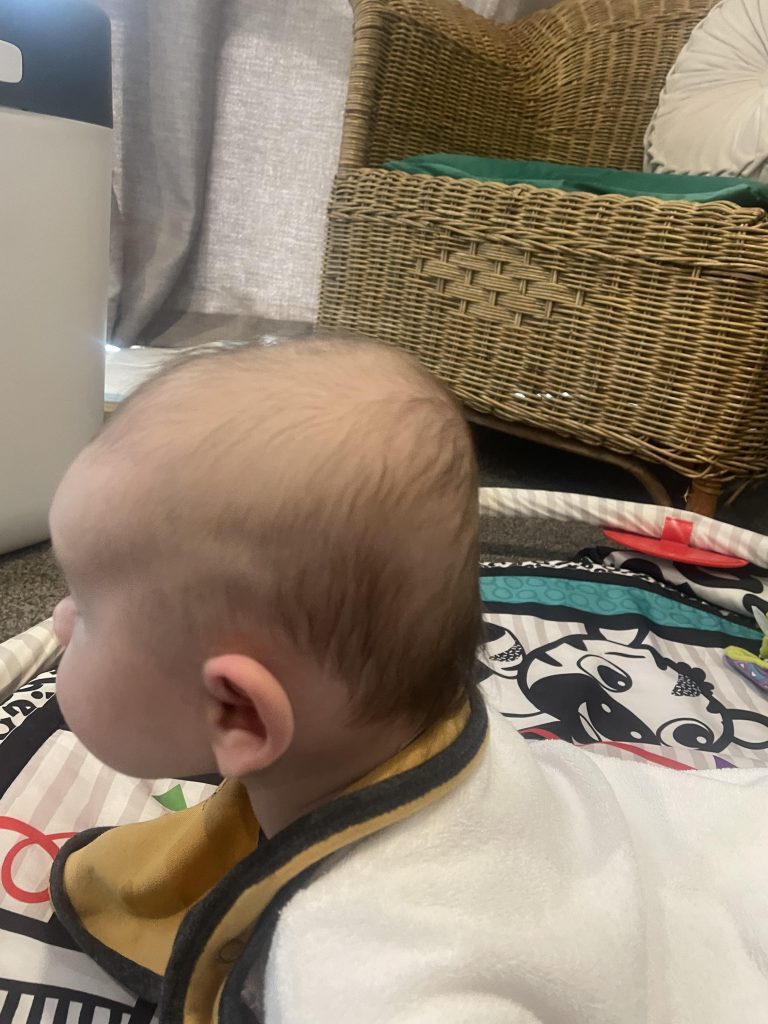 image source: reddit.com
image source: reddit.com
Chronic sleep deprivation can dampen a baby's interest in social interaction and engagement with caregivers and peers. They may show less responsiveness to social cues or attempts at interaction, preferring quiet and solitary activities instead.
49. They wake at the same time every night
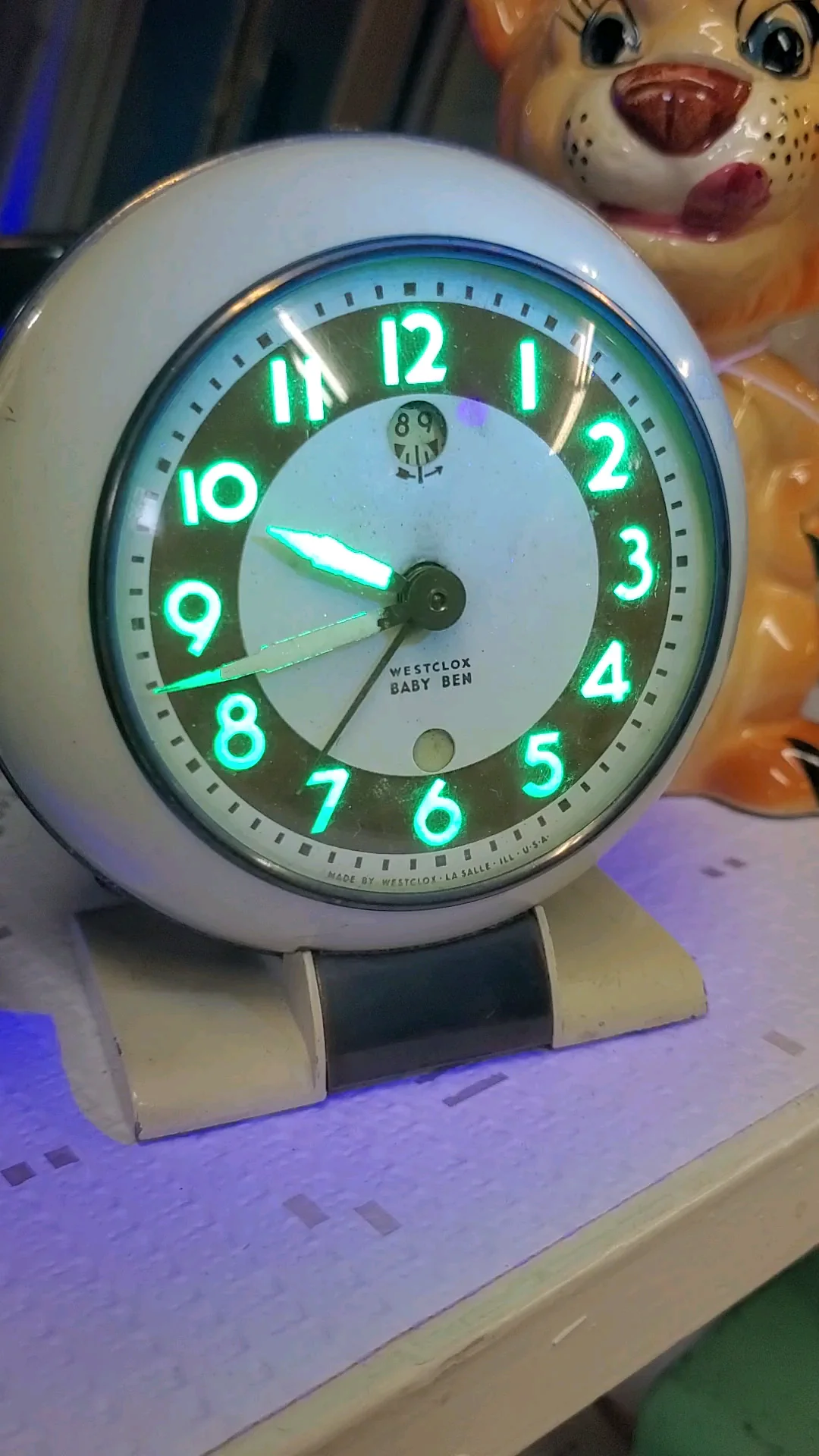
image source: reddit.com
Sleep deprivation can disrupt the continuity of a baby's sleep, leading to patterns of frequent waking at the same time each night. These disruptions may coincide with specific sleep cycles or habitual awakenings, indicating underlying issues such as discomfort or an inability to self-soothe.
50. They show aggression towards themselves and others
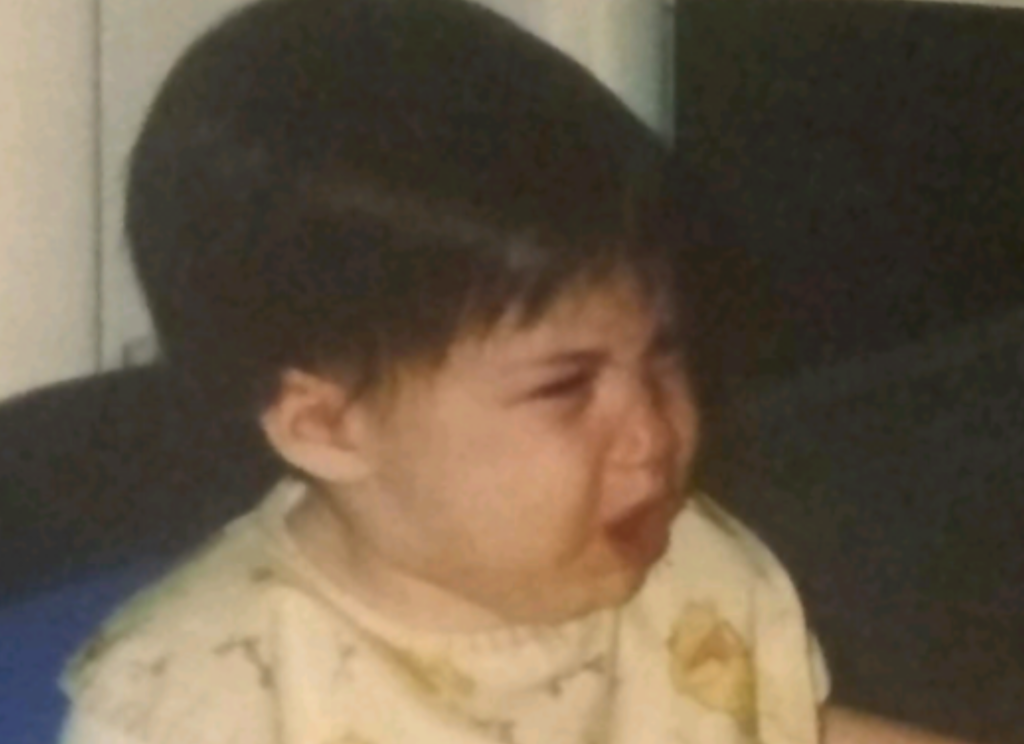 image source: reddit.com
image source: reddit.com
Sleep-deprived babies may exhibit increased irritability or aggression towards themselves or others, as fatigue heightens emotional reactivity and impulsivity. They may become easily frustrated, agitated, or prone to tantrums, finding it challenging to regulate their emotions and behavior effectively.
 image source: reddit.com
image source: reddit.com image source: reddit.com
image source: reddit.com
 image source: reddit.com
image source: reddit.com image source: reddit.com
image source: reddit.com image source: reddit.com
image source: reddit.com image source: sheknows.com
image source: sheknows.com image source: reddit.com
image source: reddit.com image source: reddit.com
image source: reddit.com image source: reddit.com
image source: reddit.com image source: reddit.com
image source: reddit.com image source: reddit.com
image source: reddit.com image source: reddit.com
image source: reddit.com image source: reddit.com
image source: reddit.com
 image source: reddit.com
image source: reddit.com image source: reddit.com
image source: reddit.com image source: snappycasualblog.com
image source: snappycasualblog.com image source: reddit.com
image source: reddit.com image source: reddit.com
image source: reddit.com image source: reddit.com
image source: reddit.com image source: reddit.com
image source: reddit.com image source: poison.org
image source: poison.org image source: community.whattoexpect.com
image source: community.whattoexpect.com
 image source: reddit.com
image source: reddit.com image source: sheknews.com
image source: sheknews.com image source: reddit.com
image source: reddit.com image source: reddit.com
image source: reddit.com image source: reddit.com
image source: reddit.com image source: reddit.com
image source: reddit.com image source: reddit.com
image source: reddit.com image source: reddit.com
image source: reddit.com image source: reddit.com
image source: reddit.com image source: reddit.com
image source: reddit.com image source: reddit.com
image source: reddit.com image source: reddit.com
image source: reddit.com image source: reddit.com
image source: reddit.com image source: reddit.com
image source: reddit.com image source: reddit.com
image source: reddit.com

 image source: reddit.com
image source: reddit.com image source: reddit.com
image source: reddit.com image source: reddit.com
image source: reddit.com image source: reddit.com
image source: reddit.com image source: reddit.com
image source: reddit.com image source: reddit.com
image source: reddit.com
 image source: reddit.com
image source: reddit.com